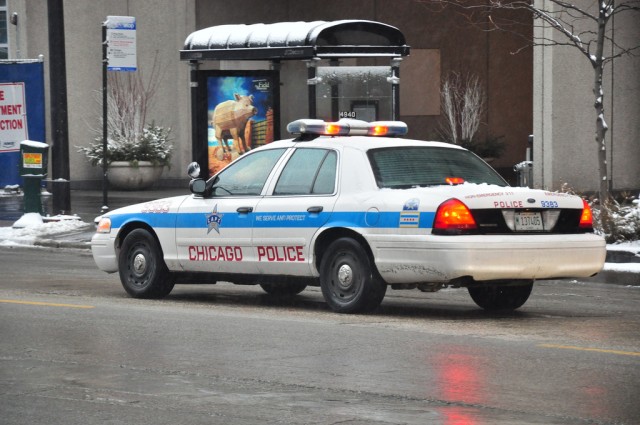The genocidal killing continues unabated in parts of Chicago, as city leaders and police seem powerless to do anything to protect citizens in one of the biggest gun-free zones (for the law-abiding citizens) in the country.
As reported by USA Today recently, the city recording 51 homicides in the month of January, the highest month on record since January 2000. As noted by the paper, the death toll is primarily attributable to gang violence and suspected Chicago Police Department misconduct.
“Gang conflicts and retaliatory violence drove the ‘unacceptable’ increase in homicides, the police department said in a statement,” the paper reported. “But the rise in violence also notably comes as the Chicago Police Department faces increased scrutiny following the court-ordered release of a police video showing a white police officer fatally shooting a black teenager 16 times, and as the department implements changes in how it monitors street stops by officers.”
Chicago is generally the top city for homicides each year, recording 504 in 2015, with 443 of those killed with a firearm, according to Chicago crime-tracking web site Hey Jackass. The site said that a total of 2,995 people were shot in the city last year.
This year the pace appears to be holding. But the January death toll marks a shocking spike in violence; there were 29 murders for the month of January a year ago; in 2014, that figure was 20 for the month.
In addition to the spike in murders, Chicago police said that it is recording some 241 separate shooting incidents for the month of January, or more than double the 119 from the same period last year.
In 2015 the department recorded 468 murders in all, or a 12.5 percent increase from the previous year. The nearly 3,000 shootings marked a 13-percent rise from 2014.
Some critics of the rising crime rate attribute it to the “Ferguson effect” – a term suggesting a causal link between protests against perceived excessive force by police, as many thought was the case in Ferguson, Missouri, and an increase in crime due to local police holding back and being less aggressive with law enforcement. But Chicago police officials pushed back against the assertion following the release of the police video showing the shooting of Laquan McDonald.
After the video was released there were several weeks of mostly peaceful protests throughout the city, and the Obama Justice Department has launched a civil rights investigation of the city.
As USA Today reported further:
Mayor Rahm Emanuel, who faced fierce backlash in the city’s African-American community over his handling of the McDonald case, fired his police superintendent, Garry McCarthy, after the video’s release.
Interim Superintendent John Escalante expressed frustration earlier this month as the homicide toll climbed, but said it was due mainly to gang activity. He also said he was concerned about social media fueling gang disputes, with fatal incidents starting as a war of words on the Internet.
“It’s the new way of taunting, challenging other gangs,” Escalante told reporters. “It’s the modern way of gang graffiti.”
In addition to Chicago, St. Louis – Ferguson is a suburb – also saw a dramatic rise in homicides after the August 2014 police shooting of Michael Brown, which a grand jury said was justified because Brown was attempting to get Officer Darren Wilson’s gun during a struggle. The shooting death spurred weeks of angry and violent protests; a number of businesses were burned and Missouri Gov. Jeremiah “Jay” Nixon ordered National Guard troops to restore order.
Baltimore also saw a rise in homicides after the death of Freddie Gray, a black male like Brown, in April. In both St. Louis and Baltimore, the increase in violent crime actually began before the high-profile incidents but accelerated greatly after them.
While there are a lot of murders in Chicago, the city is not atop the list of cities with the highest murder rates. In order they are, according to 2015 crime data from the FBI (rate per 100,000 people):
St. Louis, Missouri 49.91
Detroit, Michigan 43.52
New Orleans, Louisiana 38.75
Baltimore, Maryland 33.84
Newark, New Jersey 33.32
By the way, Chicago’s gun laws are among the most draconian in the country.
Sources:


